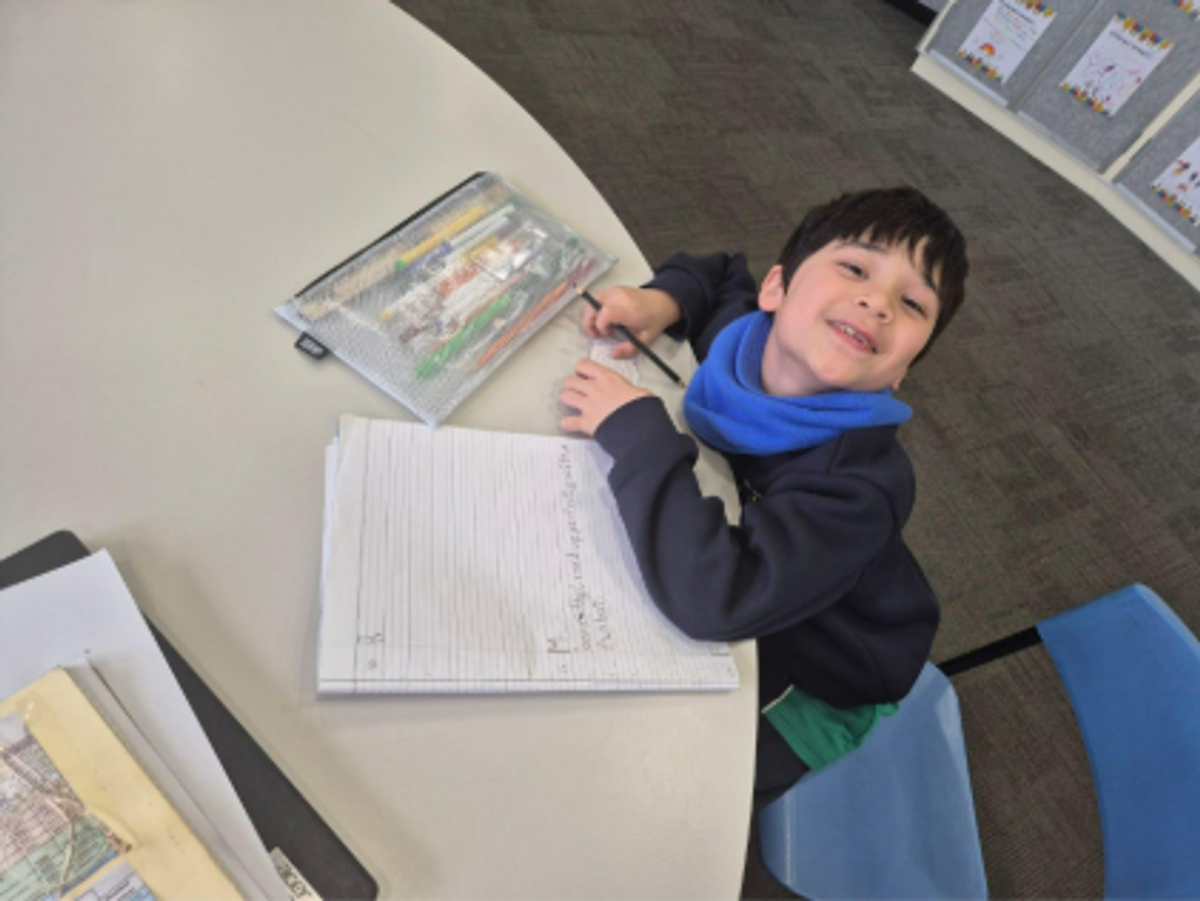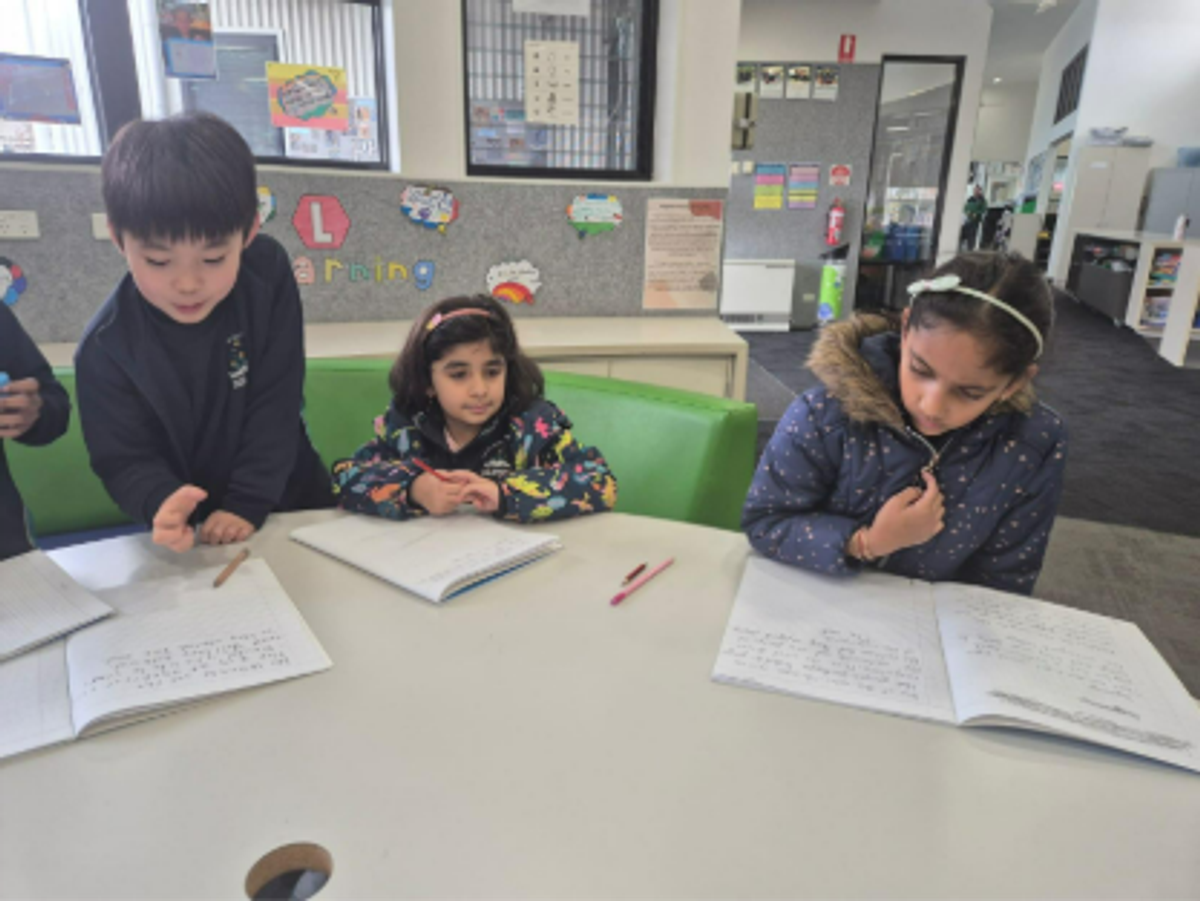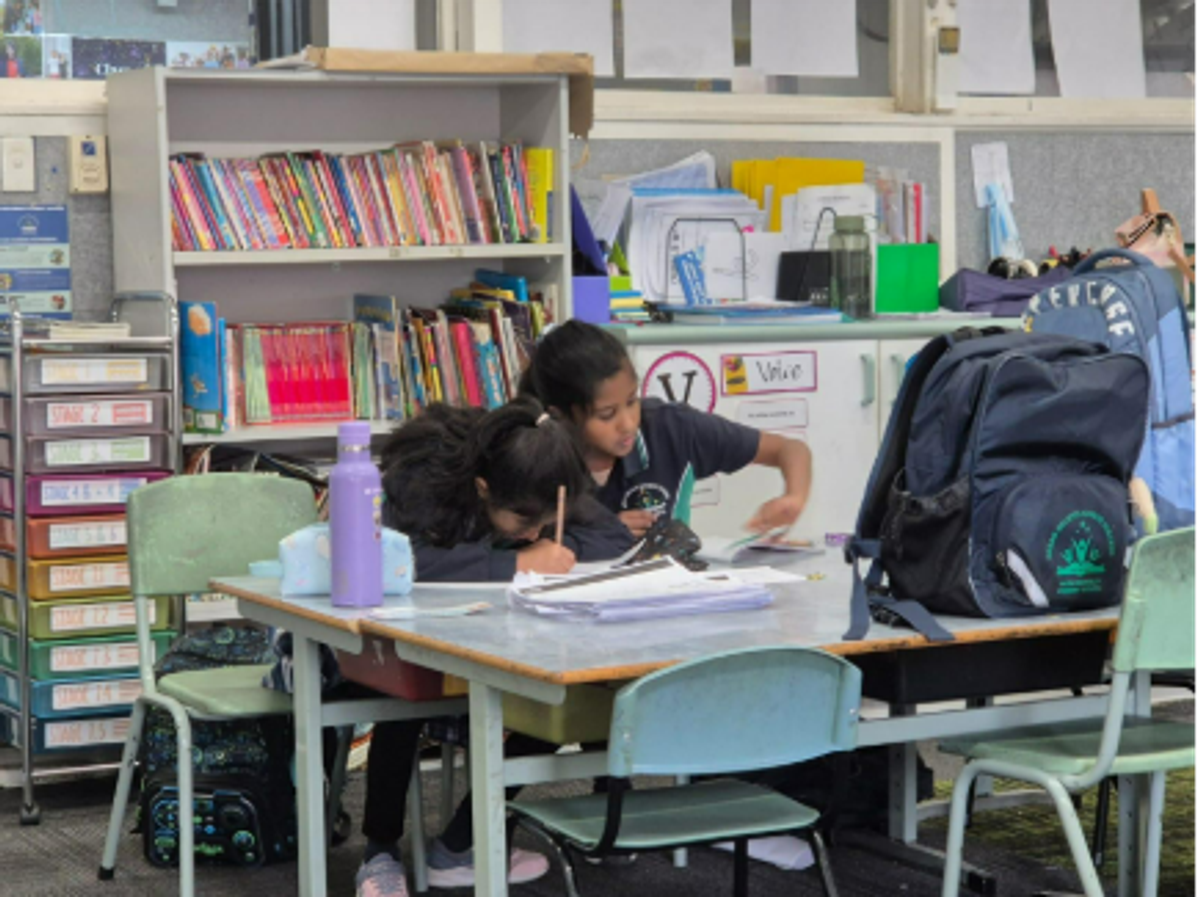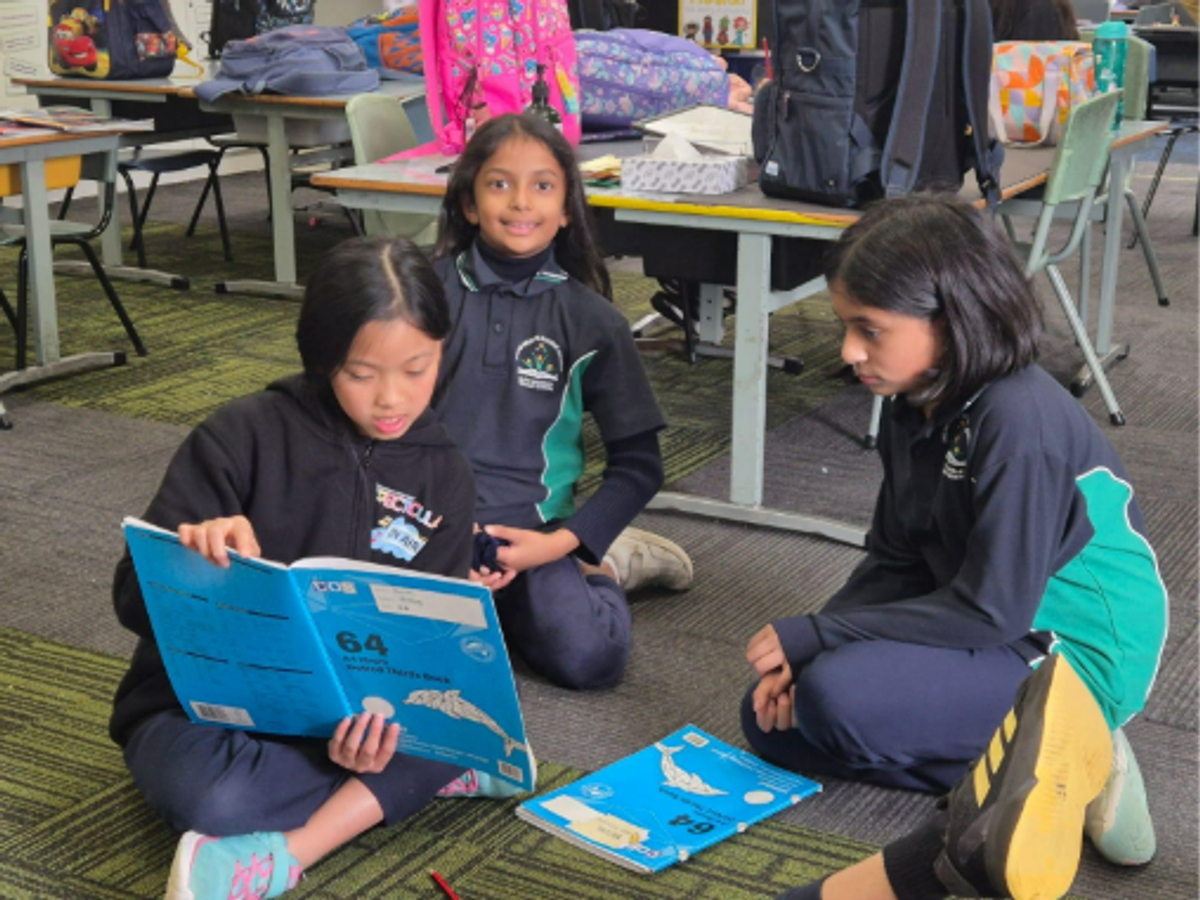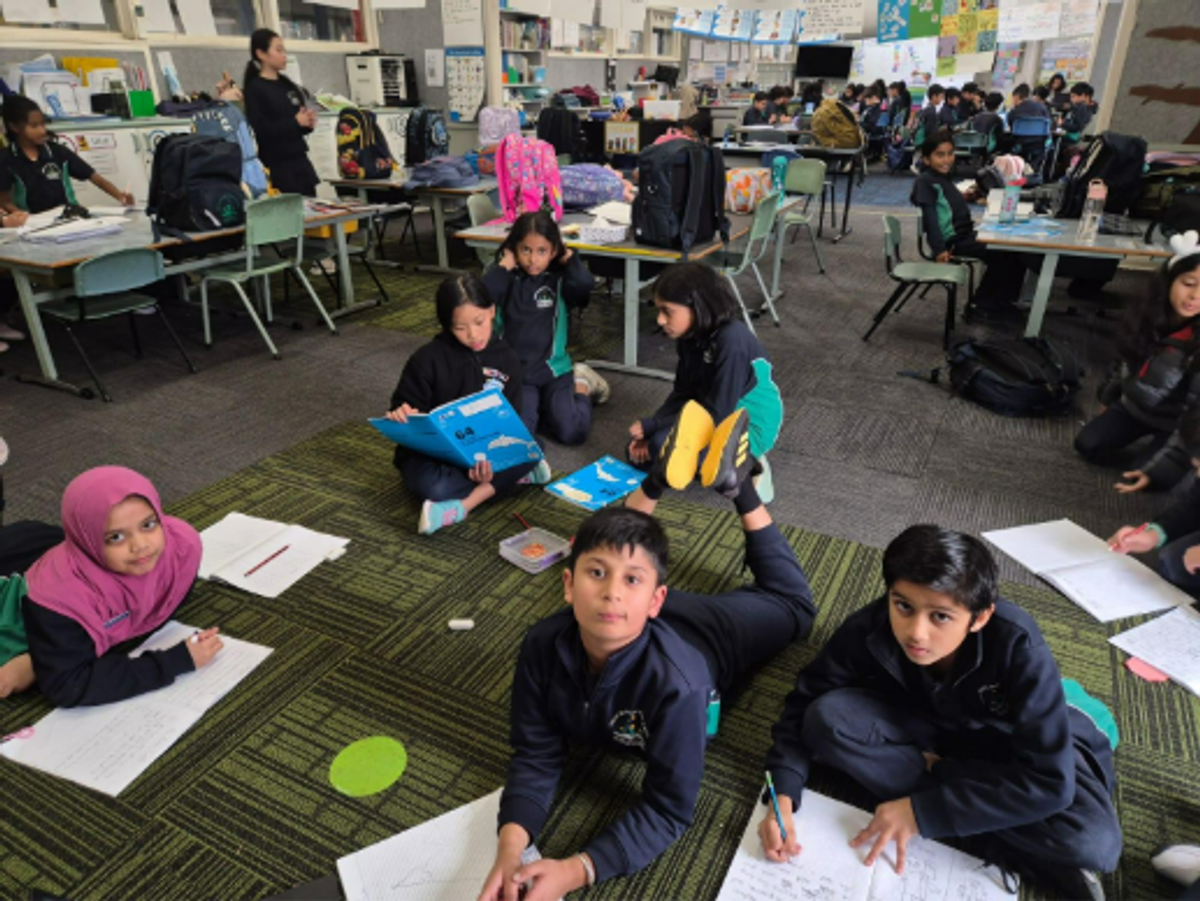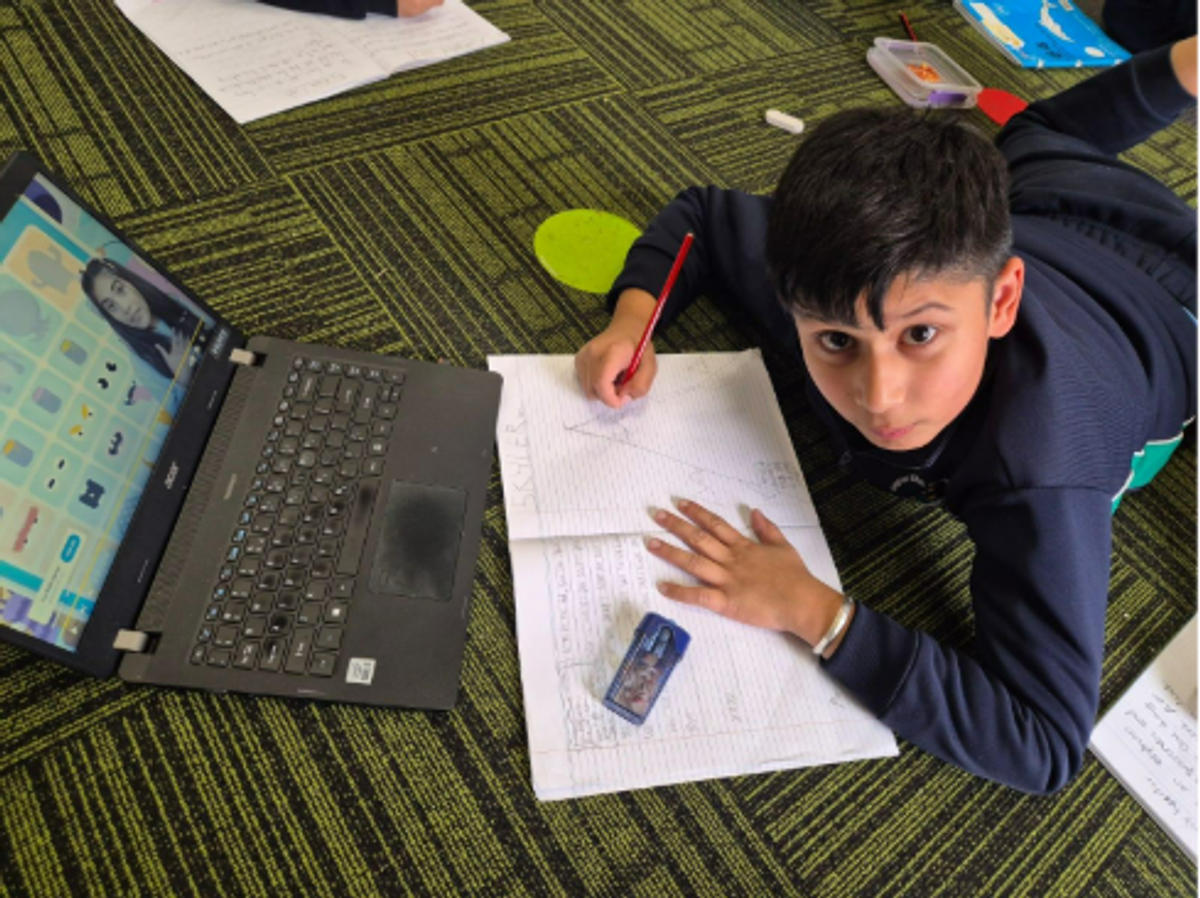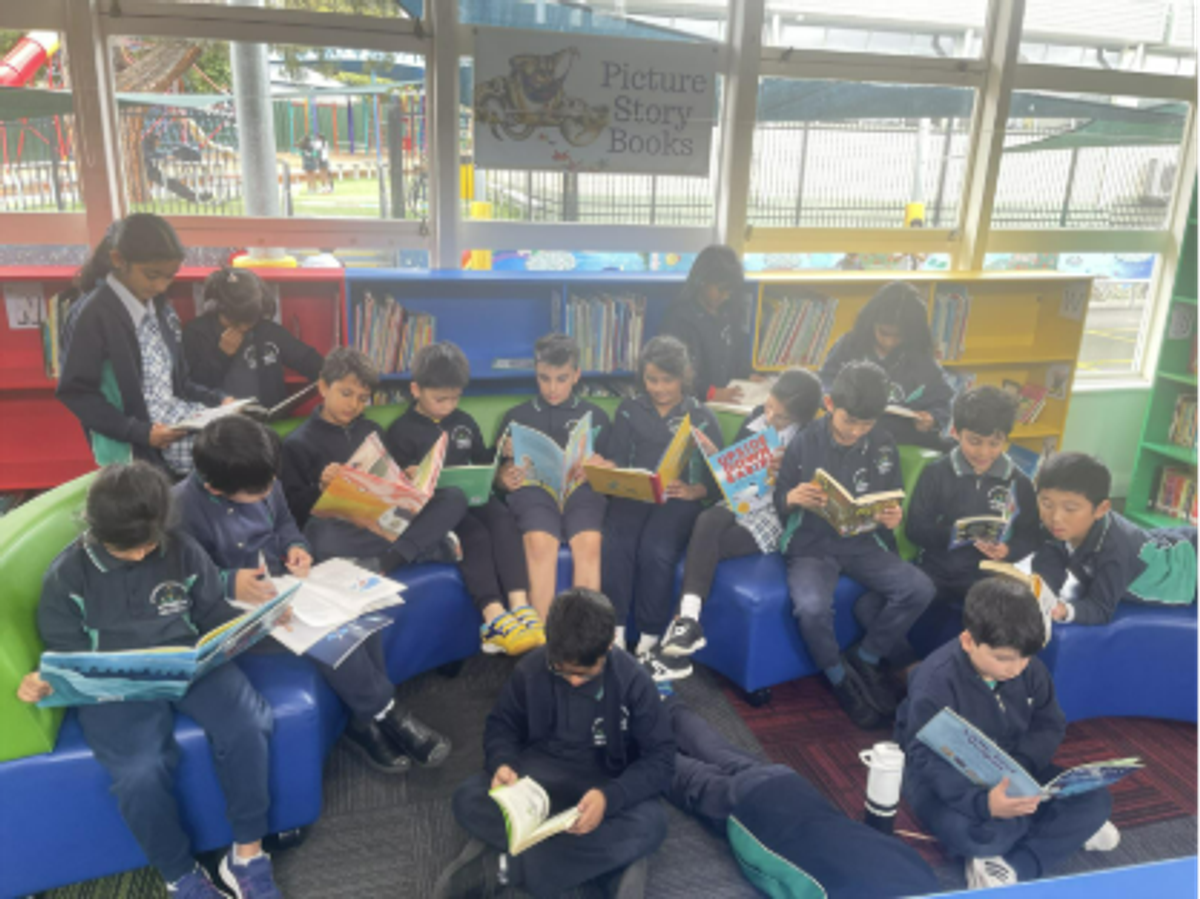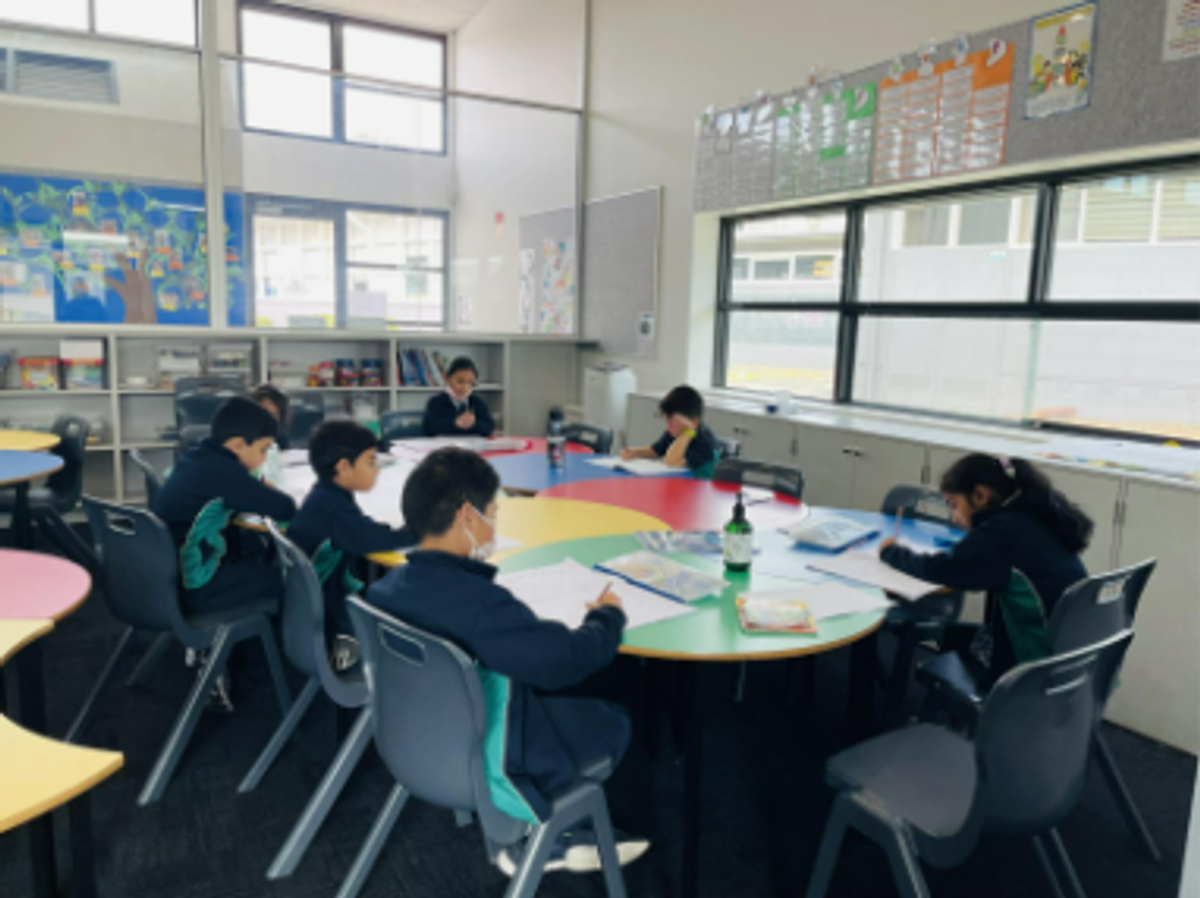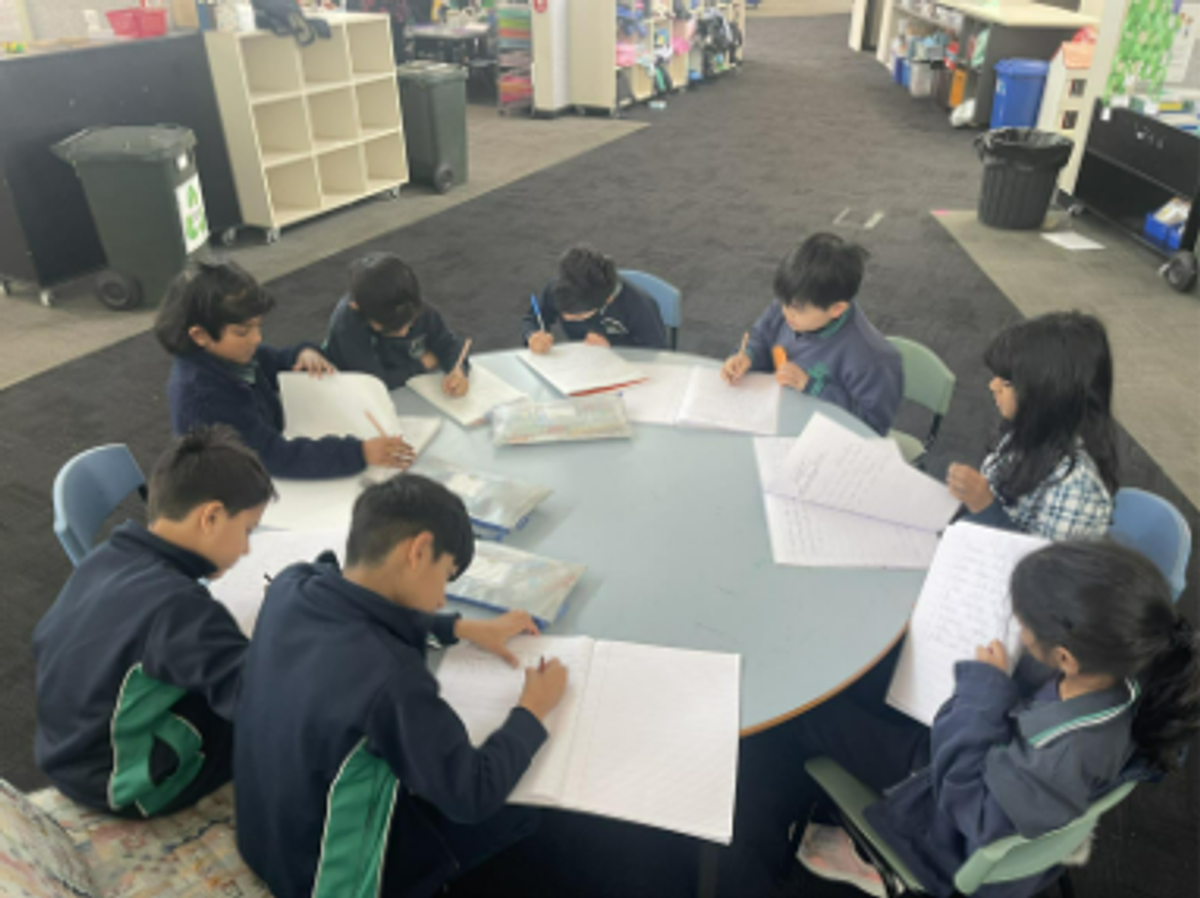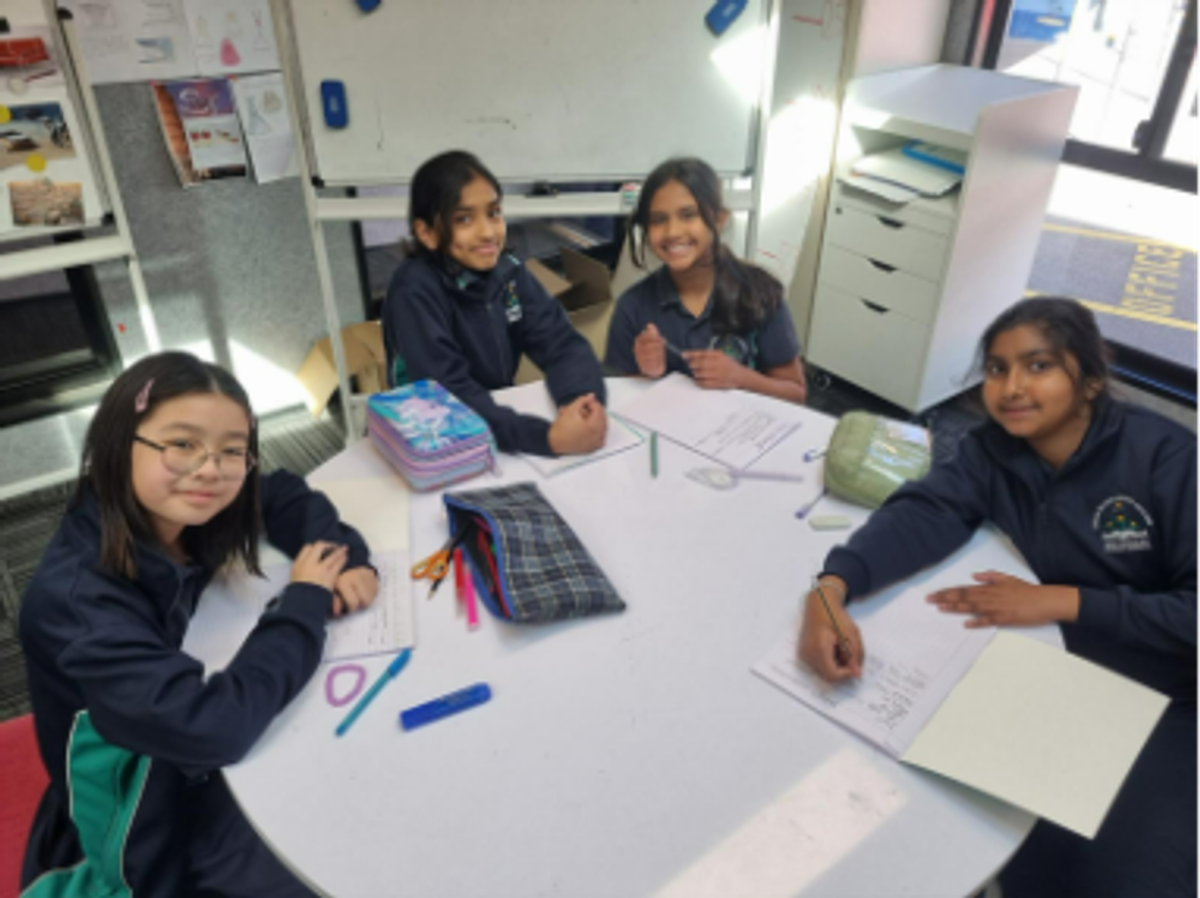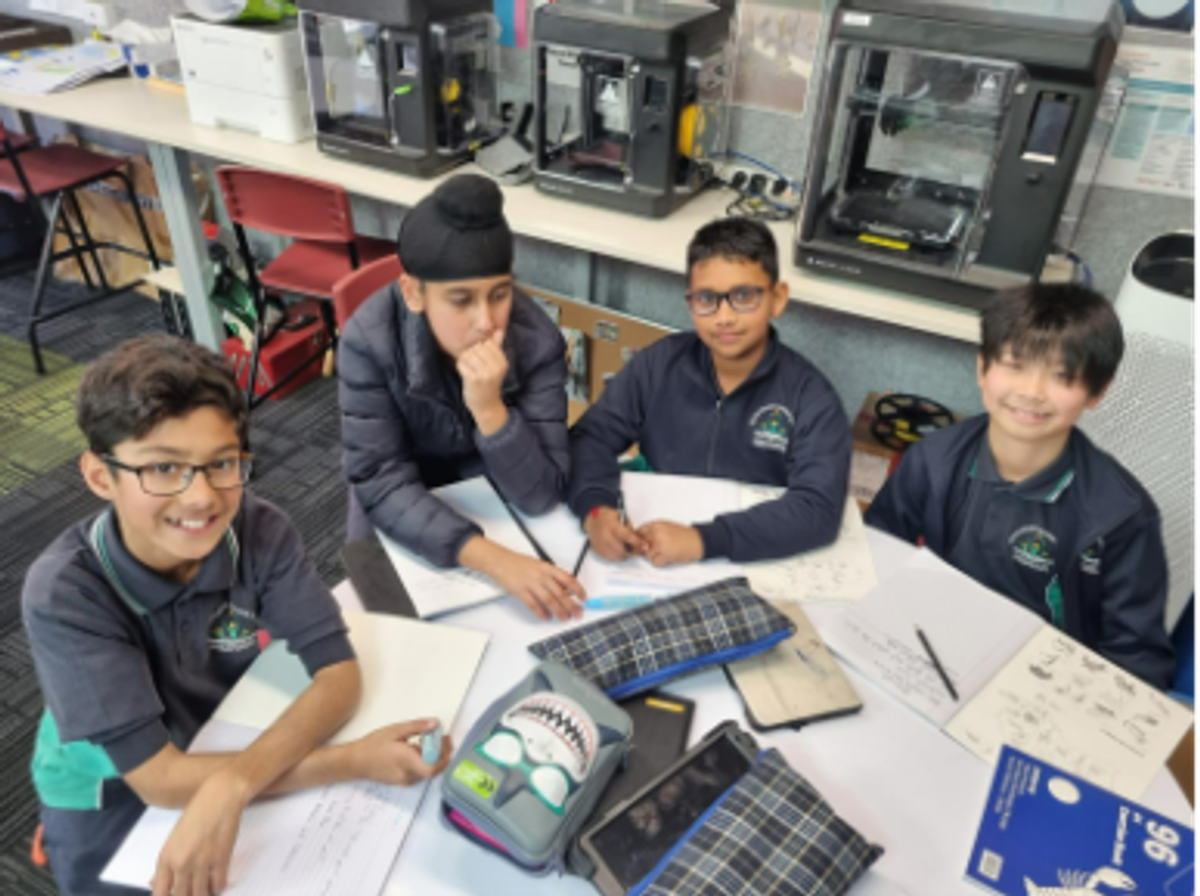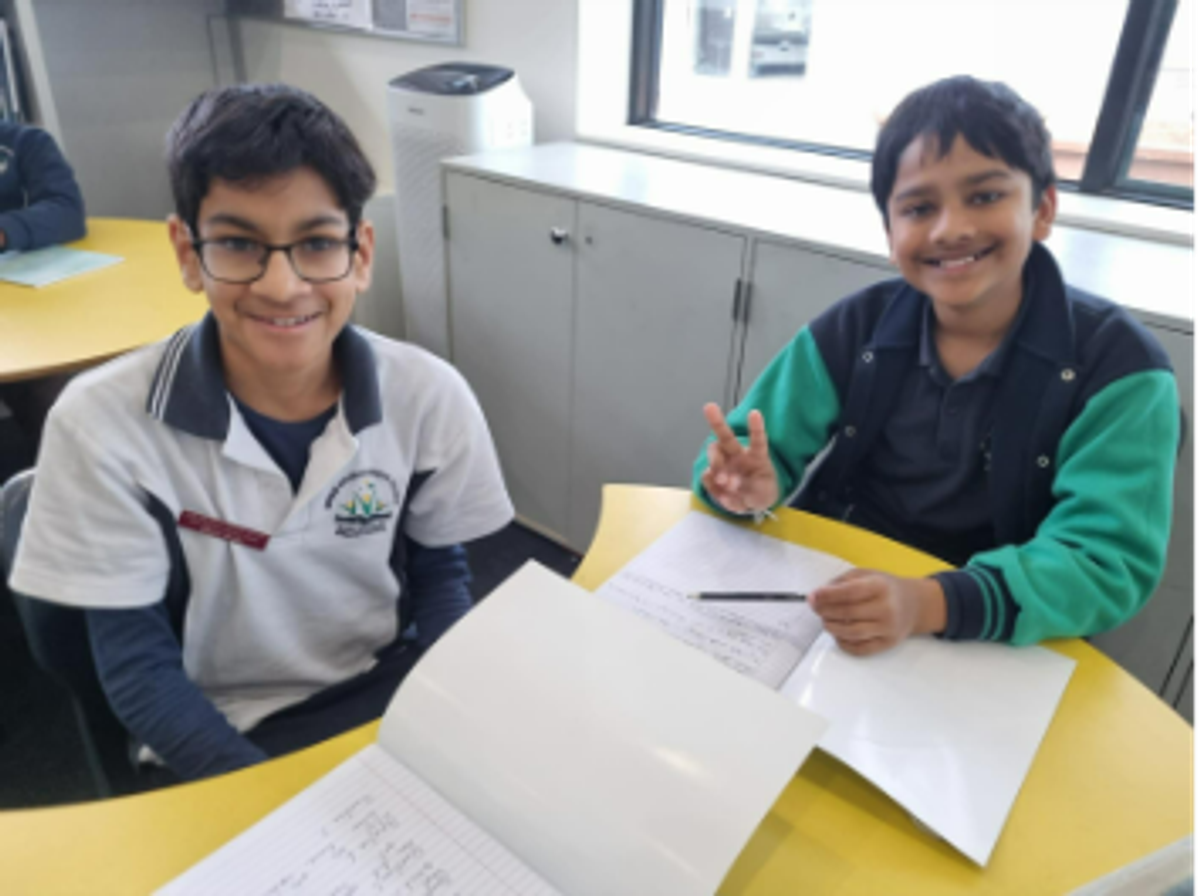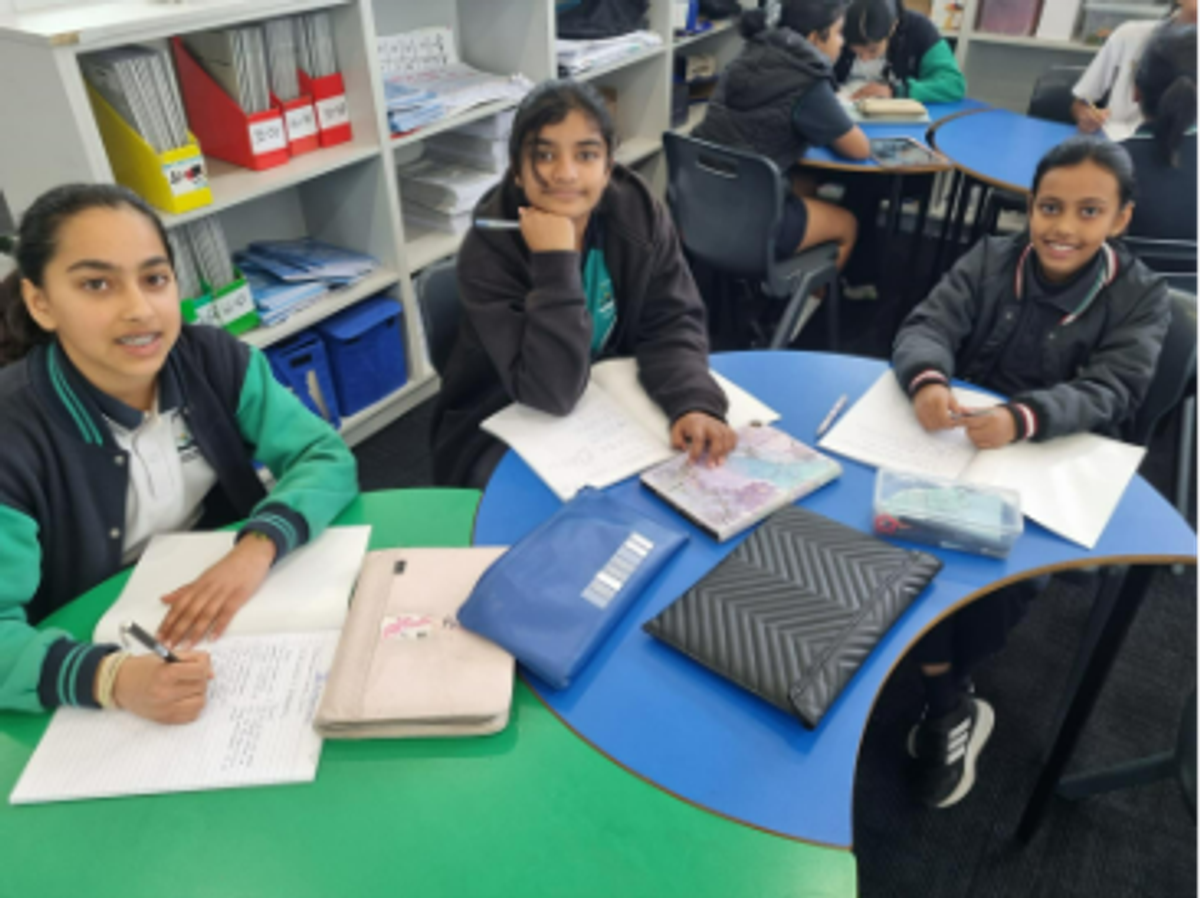English Innovation
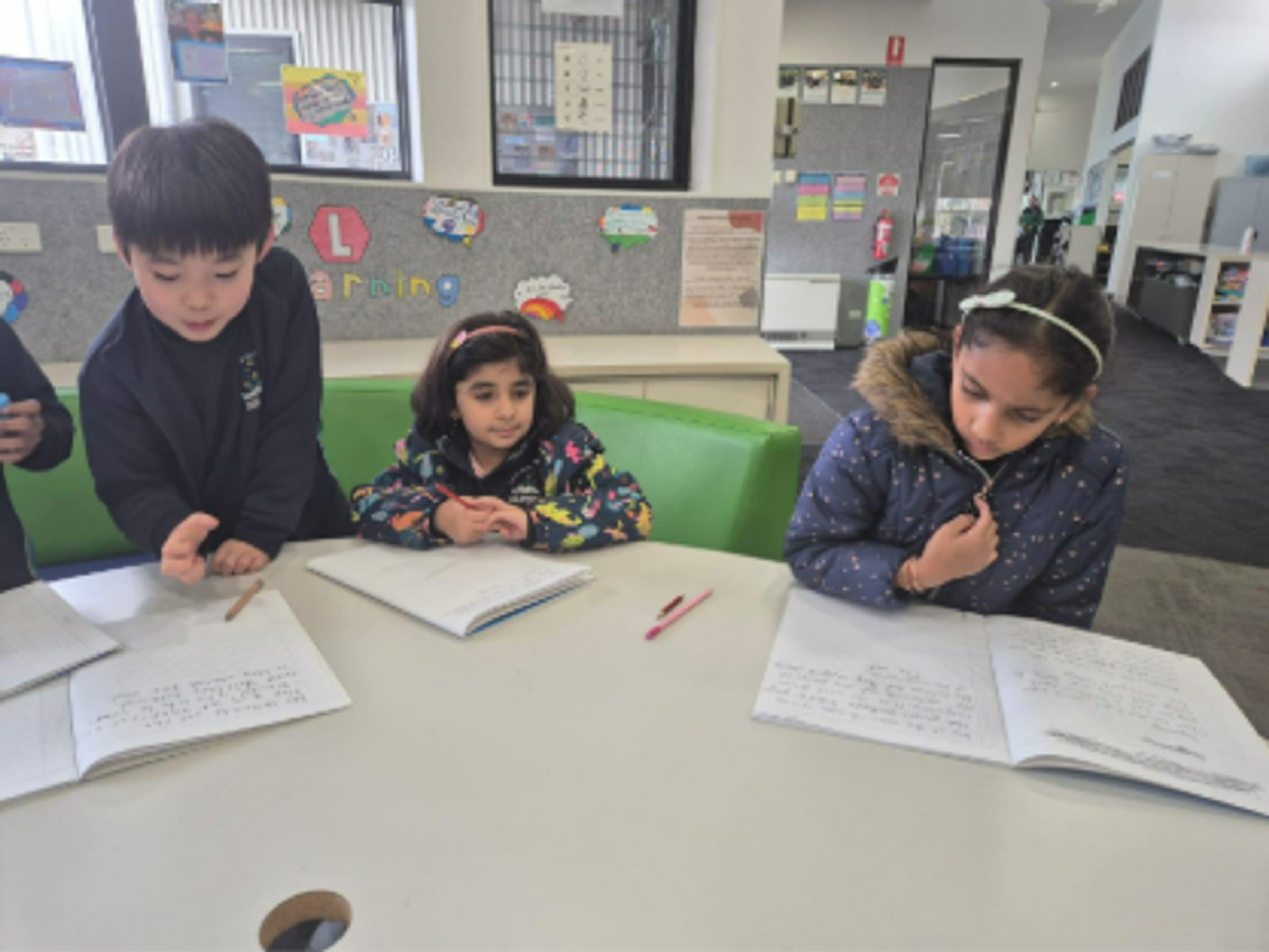
Year level: 2
This Semester, Year Two English Innovation will focus on extending students’ authorship skills in the area of poetry. Using the Victorian Curriculum as a guide, students will strengthen their writing through explicit authorship strategies. Student Voice will also play an important role, shaping the planning of teaching and learning experiences to ensure they reflect students’ interests and ideas.
The unit will broaden students’ thinking through a global and service-learning lens, providing authentic, real-life experiences to enrich both oral and written language. To conclude their semester of learning, students will use their voice and agency to design and plan a transfer experience, applying their learning in a meaningful and creative way.
Year level: 3
This Semester, Year Three English Innovation will extend students’ understanding of poetry through a global lens. They will investigate perspectives, language patterns, poetic devices, structures, metaphors, and authorship within varied cultural contexts.
The Innovator’s Mindset traits of being visionary, determined, courageous, reflective, and collaborative will guide explicit goal setting, helping students deepen their understanding of themselves as authors. Student choice, voice, and agency will be embedded throughout the teaching and learning cycle, shaping both the strategies taught and the global perspectives explored.
Year level: 4
Year Four English Innovation begins with the Innovator’s Mindset, focusing on developing creativity, resilience, and problem-solving through the power of language. Students are encouraged to see themselves as creators, not just consumers, of ideas.
In creative writing, they will reimagine familiar tales from new perspectives, experiment with different genres, and design imaginative worlds complete with maps and cultures. As “reading detectives,” students will analyse themes, infer meaning, and uncover figurative language in both poetry and prose.
Vocabulary challenges will inspire richer and more precise word choices, while exploring etymology and idioms will broaden cultural understanding. By combining creative exploration, analytical thinking, and purposeful communication, students will learn to take risks, adapt, and build on each other’s ideas — all key traits of innovative thinkers.
Year level: 5
This term in English Innovation, Year Five learners will explore text types driven by dialogue. These include play scripts, screenplays, visual novels, and interview articles. Students will investigate how dialogue can be enhanced to reveal a character’s personality and traits, as well as the power dynamics that exist between characters, demonstrated by who controls the conversation.
Connecting closely to our School Production performance earlier this term, students will unpack how plays and stage performances are written — where dialogue is supported by character actions and stage directions to drive the narrative. Ultimately, they will create their own stage performance by writing a play script that highlights the power of dialogue in bringing characters and stories to life.
Year level: 6
In Semester Two, Year Six English Innovators will collaborate as a team to create and publish our school’s very own magazine, Grapevine. As a publication and editorial team, students will first explore and analyse the various types of articles that make up a magazine, including feature articles, news stories, interviews and Q&As, reviews, and trend pieces.
Each article type has its own unique features, formatting, and elements. Through this exploration, students will develop an appreciation for the thoughtful decisions writers make to create impact. They will begin by learning how to craft effective interview questions and communication methods that not only gather valuable information but also respect the interviewee’s comfort and sense of safety.
Ultimately, students will compile their written work to publish the one and only Grapevine magazine of Glen Waverley Primary School.

